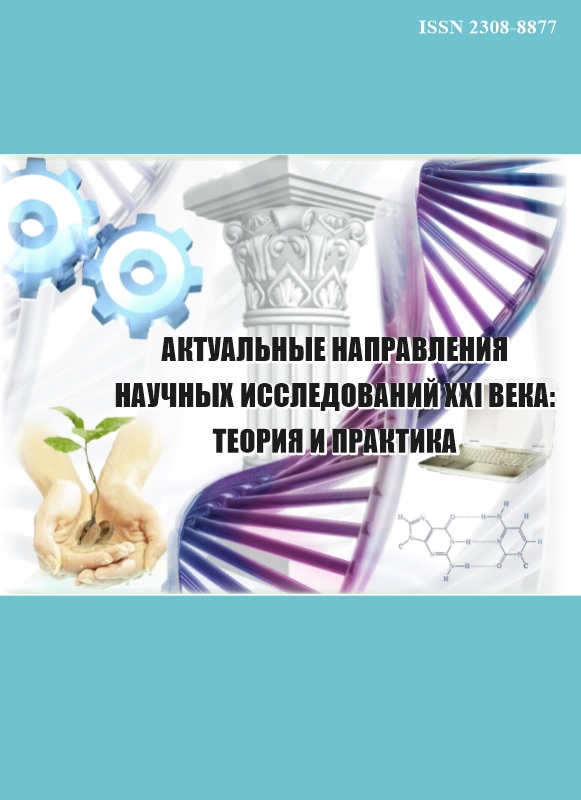Kursk, Russian Federation
UDC 33
The decline in the growth rate of the country's economy leads to an increase in the interest of various sectors of society in the search for effective ways of organizing work in the face of increasing universal digitalization. In the post-pandemic world, the able-bodied population needs new ways of earning money, the opportunity to work in their spare time, the presence of a flexible schedule, as employers are increasingly striving to optimize the costs of business processes, including personnel. Therefore, domestic employers are waiting for the development and growth of the institution of freelance, which requires an active restructuring of labor relations. The application of the gig economy as a new socio-economic model of entrepreneurial organization has influenced the emergence of modern forms of labor organization, such as outsourcing, subcontracting, freelance, remote work, outstaffing, which represent the possibility of partial employment. Such forms of labor relations are mainly in demand in the service sector and IT organizations. The aim of the study is to study the directions of transformation of forms of organization of labor activity in domestic and foreign business in conditions of transition to gig-economy. The study analyzed the development prospects of gig-economy as one of the directions of digital transformation of the economy. Also, on the basis of a synthesis of expert assessments and surveys of the population, features and prospects for the development of freelance in Russia were formed. Based on the study, the following main results were obtained: the main trends in the development of the gig economy were identified; analyzed the theoretical and practical aspects of the development of gig-economy as one of the developing areas of the digital economy; statistical assessment of the studied direction is given; the problems of organization of freelance in conditions of gig-economy are covered.
gig economy, digital economy, digital platforms, labour relations, sharing economy, freelance, economics of short-term contracts
ВВЕДЕНИЕ
В настоящее время в глобальном мире происходит большое количество социально-экономических преобразований. За прошедшие пару десятилетий с возникновением и развитием Интернета, вычислительной техники стиль мышления и жизни человека изменился. В данный момент социум переходит к пятому технологическому укладу общественного производства, происходит это в условиях цифровой трансформации социально-экономических и производственных процессов [2,6]. Развитие цифровой экономики сопровождается появлением новых трендов и их активное внедрение во все сферы жизни: мобильные сети 5G, чат-боты, связанные облачные сервисы, технологии блокчейн, больших данных и машинного обучения, дополненной и виртуальной реальности и др. [12,13,14] Изобретения последних лет и распространение цифровых технологий кардинально повлияли на методы работы людей. Одним из последствий технологического прогресса и перехода к цифровой экономике является развитие и рост gig-экономики. С появлением и внедрением искусственного интеллекта люди некоторых профессий лишились работы и были вынуждены уйти во фриланс [3]. В 2020 году тема gig-экономики стала наиболее актуальной во время пандемии коронавирусной инфекции, когда каждому пятому предпринимателю в России (18%) пришлось уволить сотрудников из-за кризиса. Спад экономики показал, что у существующей системы есть слабые места, и ускорил рост изменений, которые были неизбежны. Пандемия повлияла на процесс переосмысления и переоценки своих ценностей у людей. В настоящее время молодое трудоспособное население ставит главной задачей баланс между работой и личной жизнью в посткарантинном мире. Из этого следует, что количество gig-worker в ближайшем будущем будет увеличиваться [4].
1. Buduschee Raboty v Cifrovuyu Epohu: Potencial i Problemy Onlayn-Frilansinga i Mikrovorkinga v Indii. URL: https://icrier.org/pdf/Online_Freelancing%20_ICRIER.pdf (data obrascheniya: 29.12.2020).
2. Babkina A.V. Cifrovaya transformaciya ekonomiki i razvitie klasterov: monogr. / A. A. Aletdinova [i dr.]; pod red. A.V. Babkina - SPb.: FGAOU VO «Sankt-Peterburgskiy politehnicheskiy universitet Petra Velikogo», 2019. - 374 s.
3. V. Gimpel'son, R. Kapelyushnikov, S. Roschin. Rossiyskiy rynok truda: tendencii, instituty, strukturnye izmeneniya. URL: www.csr.ru/wpcontent/uploads/2017/03/Doklad_trud.pdf (data obrascheniya: 29.12.2020)
4. Gig -ekonomika: vozmozhnost' ili risk dlya rynka truda? URL:https://www.kas.de/documents/252038/4521287/AA349+Gig+Economy+ENGL.pdf/07894e08-2770-c349-ac20-da77d6e886b8?version=1.0&t=1556607568526 (data obrascheniya: 29.12.2020).
5. Gig -ekonomika: kak roboty, frilansery i internet menyayut ponyatie «raboty». URL: https://www.forbes.ru/tehnologii/335049-gig-ekonomika-kak-roboty-frilansery-i-internet-menyayut-ponyatie-raboty (data obrascheniya: 29.12.2020).
6. Prem'er-ministr Rossii utverdil programmu cifrovoy ekonomiki. URL: https://tass.com/economy/958455 (data obrascheniya: 29.12.2020).
7. Razmer global'noy gig -ekonomiki sostavlyaet 3,7 trilliona dollarov: SIA. URL: https://www2.staffingindustry.com/site/Editorial/Daily-News/Size-of-global-gig-economy-is-3.7-trillion-SIA-47643 (data obrascheniya: 29.12.2020).
8. Sem' industriy buduschego, kotorye izmenyat nashu zhizn'. URL: https://www.rbc.ru/magazine/2017/01/5853e39e9a79475ffbe03884 (data obrascheniya: 29.12.2020).
9. Tendencii gig -ekonomiki, kotorye radikal'no menyayut amerikanskiy rynok truda. URL: https://www.cnbc.com/2018/10/29/4-gig-economy-trends-that-are-radically-transforming-the-us-job-market.html (data obrascheniya: 29.12.2020).
10. Frilans v Amerike v 2019 godu. URL: https://www.upwork.com/i/freelancing-in-america/2019/ (data obrascheniya: 29.12.2020).
11. Frilanser ili shtatnyy sotrudnik? Kak kompaniyam rabotat' s gig -ekonomikoy. URL: https://forbes.kz/process/resources/sam_sebe_hozyain_1553881051/ (data obrascheniya: 29.12.2020).
12. Morkovina, S.S. Forestry digital platform of Russia/ Morkovina S.S., Nasriddinov S., Shanin I.I. // IOP Conference Series: Earth and Environmental Science . International Forestry Forum «Forest ecosystems as global resource of the biosphere: calls, threats, solutions». 2020. S. 012042.
13. Polozhentseva, Yu., Klevtsova M., Leontyev E. Effects of the economic space digitalization in the context of modern society transformation / Polozhentseva Yu., Klevtsova M., Leontyev E. //Ekonomichniy chasopis-XXI. -2019.- № 11-12. -S. 78-87.
14. Polozhentseva, Y.S. Tools for assessing effectiveness of public services as a part of digital economy development/ Polozhentseva Y.S., Klevtsova M.G., Sogacheva O.V., Androsova I.V. // Lecture Notes in Networks and Systems . 2020. T. 111. S. 667-675.










